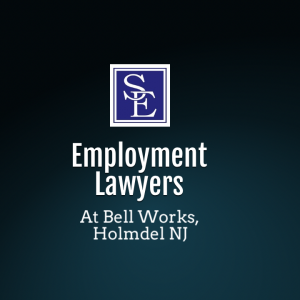The United States Equal Employment Commission (“EEOC”) has announced that it has settled a discrimination lawsuit in the amount of $321,000 against the United Airlines involving issues of cyber sexual harassment. The Flight Attendant alleged in her pleadings that United Airlines was negligent in allowing ongoing sexual harassment and cyber bullying of a pilot after she broke up with him in 2006 and therefore was responsible for creating at hostile work environment.
In the filed Complaint, the Flight Attendant alleges that she was engaged in a consensual intimate relationship with a United Airlines pilot from 2002 through 2006. During the consensual relationship, the Flight Attendant permitted the pilot to take photos and videos of her in provocative poses. The Flight Attendant alleges that the pilot also took at least one photograph and/or video with her knowledge or permission. In or about 2006, one of the Flight Attendant’s co-workers informed her that he had seen nude photos of her on an internet website for “swingers.” The co-worker told the Flight Attendant that he was led to believe that he had been “chatting” with her on the internet and that he had believed that she had personally emailed him additional photos after they had been communicating directly. Because of the conversation with the co-worker, the Flight Attendant came to believe that the pilot was the person responsible for posting and circulating the nude images of her on the internet. The Flight Attendant ended the relationship with the pilot after confronting the pilot about him posting the photos and videos without her permission or authorization.
The lawsuit alleged that the pilot continued to regularly post the sexually explicit photos and videos over the next decade, from 2006-2016. The Flight Attendant came to learn that the images and videos were viewed by at least two of her United Airlines co-workers and tens of thousands of other United Airlines personnel and coworkers. Despite her repeated complaints and obtaining an injunction, the pilot continued posting the videos and pictures on the internet. The pilot repeatedly referred to the Flight Attendant by name and her occupation and home airport, which she alleged he did intentionally to affect the terms and conditions of her employment.
The Flight Attendant first complained to two United Airlines officials about the pilots conduct in 2011 and provided the company copies of the internet postings. The Flight Attendant alleged that United Airlines failed to take appropriate preventative and corrective actions against the pilot in response to her first complaint. Later that year, the Flight Attendant made a formal complaint to the Human Resources, in which she again provided the company with hard evidence of the internet sexual harassment and stalking. After reviewing the formal complaint, United Airlines concluded that the pilot’s conduct did not constitute sexual harassment in the workplace and therefore did not warrant any further intervention or action by United AIrlines. Based upon this determination, no discipline was issued against the pilot by United Airlines. Moreover, the pilot was ultimately allowed retire with benefits while at the same time he was under criminal prosecution by the United States Attorneys Office for violating federal internet stalking laws.
This is not the first time a major US airline has been sued for sexual harassment that occurred on the internet and outside the physical work environment. In the case entitled, Blakey v. Continental Airlines, 164 N.J. 38 (2000), the New Jersey Supreme Court held that an employer can be held liable for sexual harassment that occurred on an internet bulletin board used by employees. The Blakey decision is one of the first court cases that provided precedent for claims of sexual harassment in cyberspace.
In addition to paying $321,000 to the Flight Attendant and attorney fees, the settlement agreement also requires United Airlines to provide notice to company employees of their protections under Title VII and to revise its sexual harassment policies to include expressly include harassing conduct perpetrated through the internet or social media and affecting the work environment regardless of whether the conduct occurs on or off duty.
Robert A. Canino on the EEOC’s Dallas office was quoted in the press release stating, “This case highlights the issues of employer accountability for harassment in the modern workplace. Employee workdays and jobsites are no longer defined by timecards and the walls of a building, but by the breadth of a digital day and the reach of electronic communications. The policy United has agreed to implement can perhaps serve to provide ideas for other companies adapting to the increased risks posed by employee misuse of technology.”
The case serves as another reminder of the importance of employer’s having broad anti-harassment policies in place and taking immediate remedial measures when they learn of any issues of sexual harassment amongst employees, regardless of where and when it occurs. Employers have legal obligations to keep employees safe and to assure that sexual harassment is never tolerated.
 New Jersey Employment Lawyers Blog
New Jersey Employment Lawyers Blog


